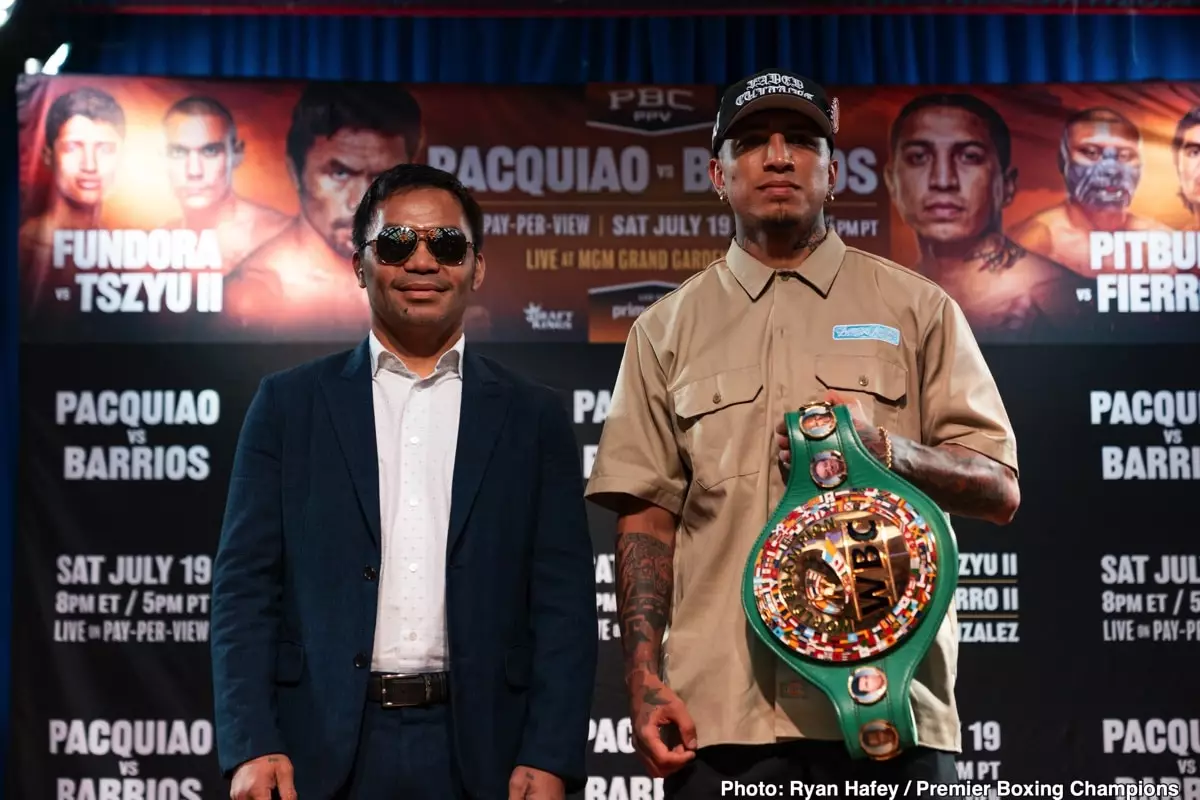As the sports world eagerly anticipates the upcoming welterweight title bout between Mario Barrios and Manny Pacquiao this July, reactions vary dramatically across the boxing spectrum. One voice, in particular, has drawn attention: Jeff Mayweather, a seasoned boxing analyst and uncle of the renowned Floyd Mayweather Jr. Mayweather’s critique of the matchup highlights a significant moral dilemma within the sport: the age-old contention between legacy and fairness. He expresses concerns regarding Pacquiao’s return to the ring after years of inactivity, labeling the fight as an “unfair” opportunity for someone who has not secured a win in recent years.
The “Money-Grab” Argument
In his statements, Mayweather pointedly described the contest as a “money-grab,” drawing attention to the ethical implications of Pacquiao’s sudden title shot. This perspective embodies a frustrating reality for many aspiring boxers who dedicate years trying to climb through the ranks, only to see a legend with a lack of recent activity skipping the queue. Mayweather articulates his frustration: “It’s shocking… it’s unfair to guys that have fought to try to rise up the ranks.” This brings to light the broader issue of meritocracy within sports—should past glories afford athletes special treatment in the quest for championship belts?
Pacquiao’s Dual Motivations
Nevertheless, one cannot entirely undermine Manny Pacquiao’s motivations. After a historic and grueling career, the question arises: Is he fighting simply for financial gain or to continue crafting his legacy? Although Mayweather suggests that Pacquiao might just be adding to his illustrious history, one can’t help but ponder how personal circumstances could be influencing his decisions. Is there financial instability? Or is it merely the thirst for glory that drives him back into a ring, ripe with youthful contenders?
Despite the mixed undertones in Mayweather’s assessment, he does acknowledge Pacquiao’s potential to emerge victorious in the fight, citing his speed as an advantage even at the age of 46. This juxtaposition creates a unique narrative where a fighter’s historical greatness battles with the present realities of athleticism. While Barrios boasts youth and vigour, Pacquiao counters with an understanding of the ring that can only come from experience.
The Significance of Legacy in Sports
As the date draws near, the implications of this fight extend beyond who walks away with the championship belt. It poses an essential question about how we define legacy in sports. In an era where athletes are constantly measured by their most recent performances, Pacquiao underscores a different narrative—one where a fighter’s past achievements still hold weight.
The discussion surrounding the fight raises broader societal issues, such as privilege versus hard work. Young fighters like Barrios may see this encounter as an opportunity lost, whereas Pacquiao’s presence provides a talking point about how the sport treats its icons. As analysts like Mayweather weigh in, it remains clear that this fight is not just about two men in the ring; it embodies the ongoing tension between legacy, fairness, and the true spirit of sport.


Leave a Reply